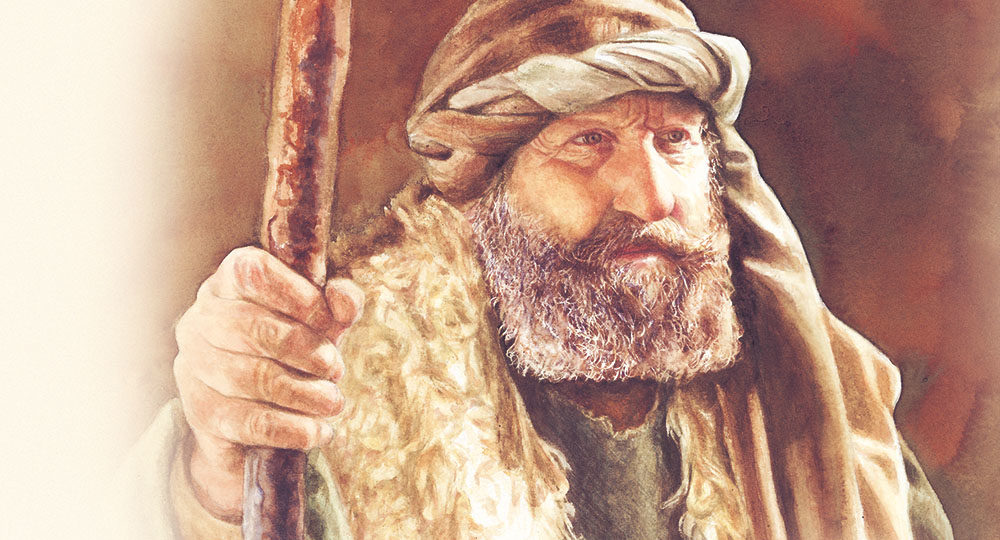Give Us a King
1 Samuel 8:1-22
Unlike most nations, Israel’s earliest form of government was a theocracy. God Himself ruled the nation through a number of patriarchs, beginning with Abraham. After Moses died, the mantle of leadership went first to Joshua, then to a series of judges, ending with Samuel. But Israel grew weary of the judges and desired a day when it would have a king like other nations.
Many historical changes contributed to Israel’s demand for a king. The nation was oppressed by neighboring nations and was politically disunited, unstable (Jud. 21:25), and morally corrupt (1 Sam. 2:17–36). Samuel, a godly judge, prophet, and priest, had made judges of his two evil sons who perverted justice, thus making them unworthy to lead Israel (1 Sam. 8:1–3). So the elders in Israel approached Samuel, asking that he step aside as their ruler and establish a king to govern them.
Samuel was reluctant but did so at God’s command. Nevertheless, he warned the Israelites of the tragedy that would befall them if they chose to be ruled by a king rather than by God.
The People’s Request
And it came to pass, when Samuel was old, that he made his sons judges over Israel. Now the name of his first-born was Joel; and the name of second, Abijah; they were judges in Beer-sheba (vv. 1–2).
Samuel evidently did not retire from his judgeship. He simply appointed his sons to help administrate justice on the southern border of the land in Beer-sheba. This fact is confirmed by an earlier statement, “Samuel judged Israel all the days of his life” (1 Sam. 7:15).
However, Samuel’s sons were unqualified for the job. “And his sons walked not in his ways, but turned aside after money, and took bribes, and perverted justice” (v. 3). They misused their positions by accepting bribes and making judicial decisions based on financial gifts—something condemned by the Mosaic Law (Ex. 23:6, 8; Dt. 16:19). They perverted justice by ruling in favor of the highest bidder. Thus the rich received honor, but the poor suffered the worst kind of oppression and deprivation of rights.
The injustices Joel and Abijah practiced drove the elders of Israel to confront Samuel about the deteriorating situation:
Then all the elders of Israel gathered themselves together, and came to Samuel unto Ramah, And said unto him, Behold, thou art old, and thy sons walk not in thy ways; now make us a king to judge us like all the nations (vv. 4–5).
A closer look at the text reveals that the corruption of Samuel’s sons was only a convenient pretext. The elders’ real motive was to rid Israel of the theocratic system of rule in favor of a human king. The phrase like all the nations revealed that Israel’s leadership was rebelling against God’s rule.
From its inception as a nation, Israel was to be different from other nations. It was to be ruled by God Himself as His unique possession (Lev. 20:26). The elders needed Samuel’s approval because they knew that to set up a king without it would bring God’s wrath on the nation.
Before Israel even had entered the land of Canaan en route from Egypt, Moses had prophesied that the nation would request a king (Dt. 17:14); and he provided God’s guidelines for one. The king had to be an Israelite of God’s choosing, not a foreigner. He was not to amass horses, wives, or great wealth for himself. He was to read the Law of Moses and be obedient to God with reverential fear (Dt. 17:14–20).
Thus the nation’s desire for a king was proper; it was, in fact, part of God’s plan. However, it was improper to request a king then. The demand was made at the wrong time and for the wrong reasons.
The Prophet’s Prayer
Samuel’s response was predictable: “But the thing displeased Samuel, when they said, Give us a king to judge us. And Samuel prayed unto the LORD” (v. 6). The Hebrew word for “displeased” means “to see the evil in something.” Samuel knew that Israel’s desire reflected its discontent. He also knew that having a king would mean forfeiting many of the freedoms enjoyed under theocratic rule. A monarch eventually would suppress the people and enslave them. Nevertheless, Israel was determined to have a king without consulting God.
So Samuel did what he always did. He “prayed unto the LORD” (v. 6). Prayer did four things for Samuel. First, it provided God’s guidance on how to respond to the elders’ request. Second, it provided God’s instruction on how to respond to the request. Third, it gave him strength to proceed with God’s will on the issue of granting a king to Israel. Fourth, it brought God’s peace for the transition from a theocracy to a monarchy.
God answered Samuel’s prayer by instructing him to grant Israel its request (vv. 7, 9, 22):
Hearken unto the voice of the people in all that they say unto thee; for they have not rejected thee, but they have rejected me, that I should not reign over them. According to all the works which they have done since the day that I brought them up out of Egypt even unto this day, wherewith they have forsaken me, and served other gods, so do they also unto thee (vv. 7–8).
The elders’ request cast aspersion on Samuel’s leadership and constituted a rejection of God’s rule. Such had been Israel’s attitude since the day the Israelites left Egypt.
God said to Samuel, “Now, therefore, hearken unto their voice; howbeit, yet protest solemnly unto them, and show them the manner of the king who shall reign over them” (v. 9). The phrase protest solemnly unto them means God told Samuel to warn the elders of the dangers of a king and the price they would pay by demanding one. Samuel was faithful and “told all the words of the LORD unto the people who asked of him a king” (v. 10). The high priority Samuel placed on prayer in his life gave him the power and peace needed to proclaim obediently the Lord’s command.
The Payment Required
Samuel told the Israelites the great cost of having a king. First, a king would demand compulsory service from their children:
He will take your sons, and appoint them for himself, for his chariots, and to be his horsemen; and some shall run before his chariots. And he will appoint for himself captains over thousands, and . . . fifties; and will set them to plow his ground, and to reap his harvest, and to make his instruments of war, and instruments of his chariots. And he will take your daughters to be perfumers, and to be cooks, and to be bakers. And he will take your menservants, and your maidservants, and your choicest young men, and your asses, and put them to his work (vv. 11–13, 16).
Thus a king would strip them of self-rule, individual freedom, and the personal dignity they had enjoyed under God’s theocratic reign.
Second, a king would confiscate their land—their fields, vineyards, and olive yards. Not just any land would be acquired from them, but “the best” land (v. 14).
Third, a king would demand compensation from their produce: “And he will take the tenth of your seed, and of your vineyards, and give to his officers, and to his servants. He will take the tenth of your sheep; and ye shall be his servants” (vv. 15, 17). All these sacrifices would be necessary to pay for building and maintaining a monarch’s kingdom.
Fourth, the Israelites eventually would complain about the cruelty imposed by the monarch’s rule: “And ye shall cry out in that day because of your king whom ye shall have chosen; and the LORD will not hear you in that day” (v. 18). Samuel warned Israel that it would beg the Lord for deliverance; but by then, the theocratic rule it had enjoyed would be gone. Israel would reap the consequences of its sinful decision.
When Saul was anointed king over Israel, these prophecies began to be fulfilled. The evils of human rule intensified during the reigns of the kings in Israel and Judah. Israel turned away from God; and, consequently, God turned away when the nation cried for help.
Samuel’s counsel went unheeded:
Nevertheless, the people refused to obey the voice of Samuel; and they said, Nay, but we will have a king over us, That we also may be like all the nations; and that our king may judge us, and go out before us, and fight our battles (vv. 19–20).
Israel’s spiritual dullness and self-deception prompted her persistence in demanding a king. If the Israelites had waited for God’s timing and choice, they would have received David as their king. Instead, God gave the nation Saul.
Notice the progression in Israel’s demands. First, the elders said, “Give us a king” (v. 6). Then they defiantly told Samuel, “We will have a king” (v. 19). Interestingly, Israel’s most formidable enemy had no king but was ruled by an oligarchy (five princes). The Israelites mistakenly assumed that having a king to judge them and fight their battles would give them security and success in defeating their surrounding enemies. Nothing could have been further from the truth!
God granted Israel its desire. “Hearken unto their voice, and make them a king. And Samuel said unto the men of Israel, Go ye every man unto his city” (v. 22). Samuel yielded to God’s response to his prayer and granted Israel its request. He dismissed the elders, and each returned to his city.
Details of the new monarchy and its system of rule were left for Samuel to work out with the Lord (10:25). Samuel remained a prophet even though Saul was anointed king, for Samuel judged Israel all the days of his life.
Although Israel has not lived under theocratic rule for many centuries, one day another theocracy will be established under the messianic rule of Jesus Christ. With Christ reigning as King, Israel will enjoy all the political and social benefits that it had hoped a monarch would provide.







